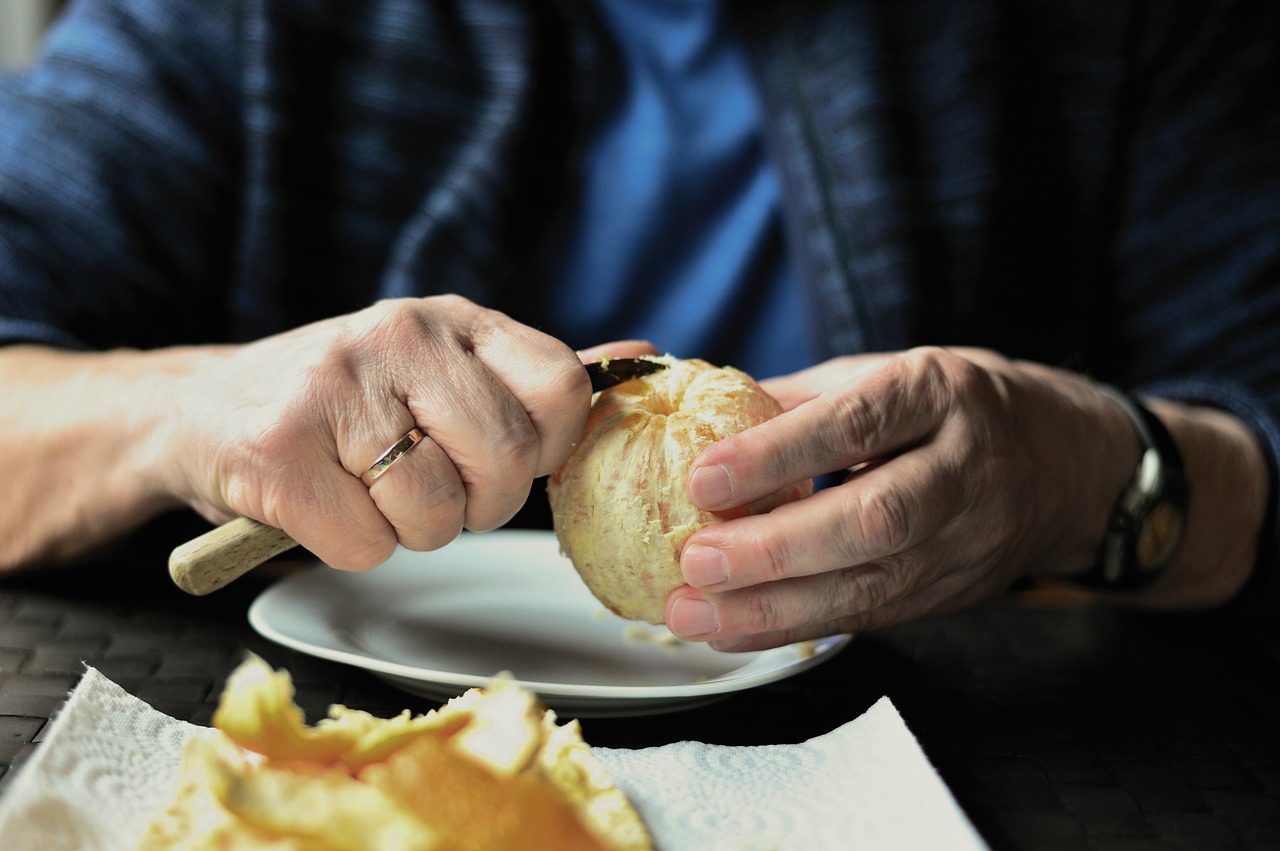Some people with dementia find that their appetite changes. You might feel more or less hungry or have unhealthy cravings. People with frontotemporal dementia are known to develop a sweet tooth.
Because of appetite changes people with dementia sometimes gain or lose weight. Some people with dementia forget to eat and become malnourished.
Try to maintain a healthy weight. If you are low on certain vitamins and minerals this can have a big impact on how well your brain works. Your diet is important for brain health.
Talk to your doctor if you have concerns about your weight, diet or appetite. Your doctor might refer you to a dietitian for further advice.
Eat a healthy diet
Research shows that a Mediterranean diet can help prevent dementia, but we don’t have proof that this diet helps people who have dementia. A Mediterranean diet includes lots of vegetables, fruits, pulses, nuts, whole grains, fish, seafood and olive oil, as well as some dairy.
The Mediterranean diet has less sugar, red meats and processed foods. You don’t need to cook Mediterranean recipes, just eat foods commonly found in Mediterranean diets, and avoid foods not in the diet.
- Try to eat fresh, healthy food which includes lots of fruits and vegetables as your brain will work best with this fuel.
- Drink less alcohol. Drinking a lot of alcohol (i.e. more than 7 drinks a week for women, or more than 14 drinks a week for men) increases the risk of getting dementia. Heavy drinking may also speed up deterioration in people with dementia.
- Drink 8-10 cups of water a day. Studies suggest that people who are dehydrated don’t think as well. Stay hydrated by drinking at least 8 cups of water a day. It’s easy to forget to drink, and the ability to sense thirst goes down with age.
- Make it part of your routine to have a glass of water with every meal, and in between meals too. Water is the healthiest choice, but tea, milk, juice, and soup can also help you stay hydrated.
- Improve your diet gradually. It’s hard to change habits, including your diet. Food can be much more than about nutrition, food can be enjoyment, comfort, and a way to express yourself or your culture.
- Changing your shopping habits can help change your diet – for instance if you buy more healthy food, and less junk food.
- Start with one or two small food changes until they become habit. For instance, drinking enough water, or eating more fruit.
Eat well
- Try to eat more fresh, healthy food which includes lots of fruits and vegetables.
- Try to eat less processed food.
- Drink less alcohol.
- Drink more more water.
Watch this inspirational video
Dementia Australia have shared these videos about people with dementia maintaining their physical and mental health on the Living Well with Dementia website:





